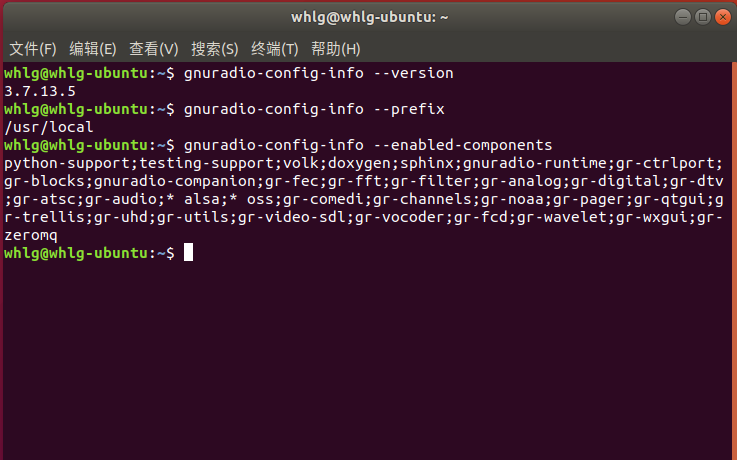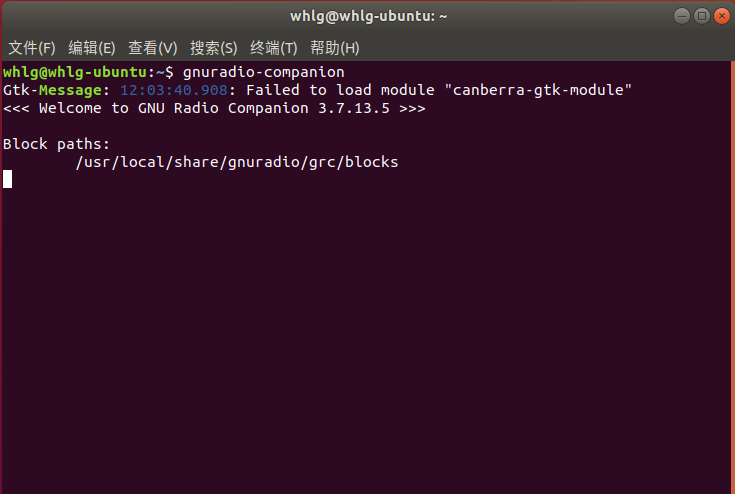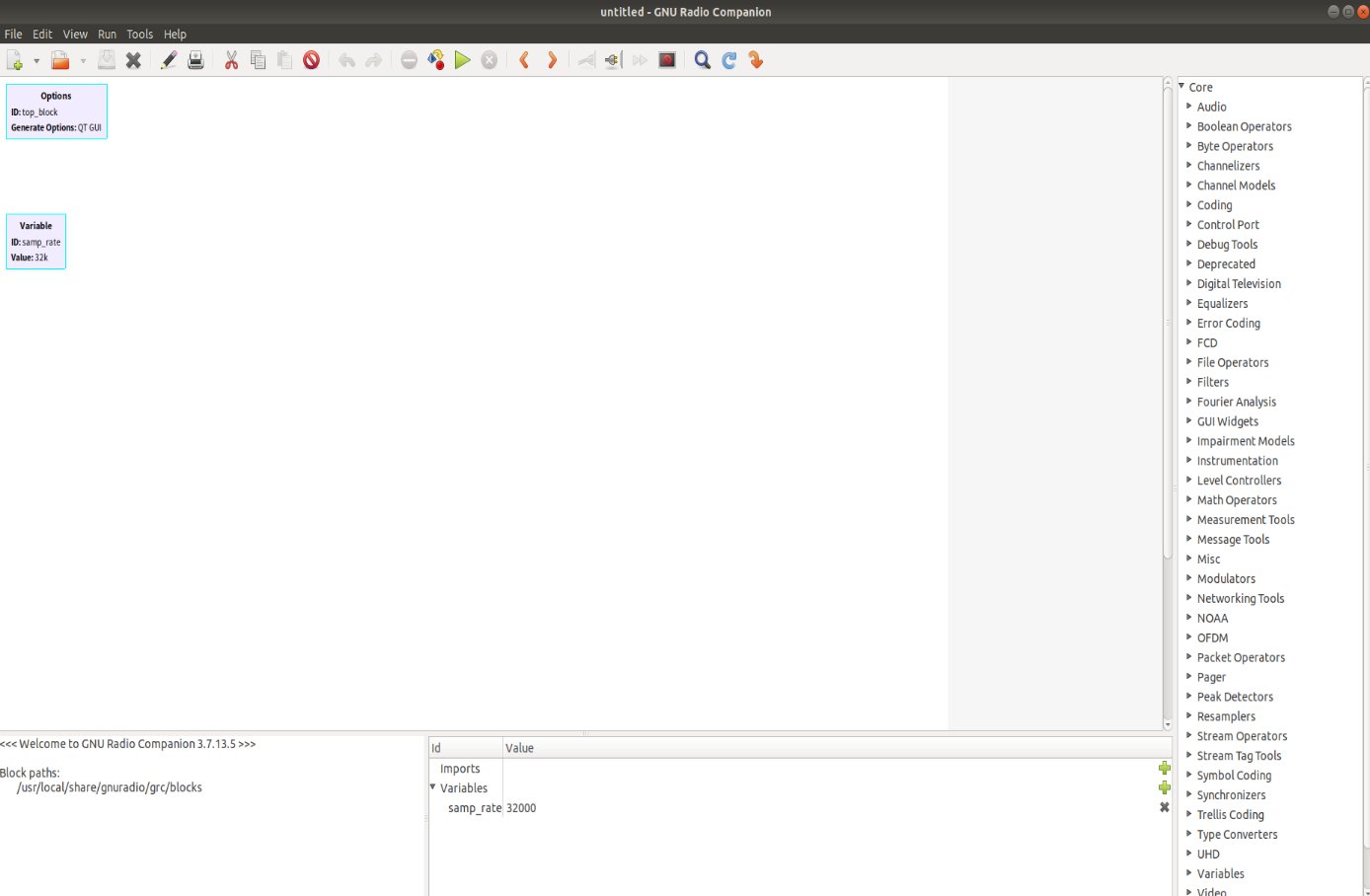Software Radio User Guide: Part 1 Manual Environment Setup
This installation tutorial is carried out under the Ubuntu system. First install the Ubuntu system, then follow the tutorial below
Step 1: Update the package list and update the system software
sudo apt-get update
sudo apt-get upgrade
Step 2: Install the dependencies
Take the dependencies required for Ubuntu 14.04 or 14.10 as an example:
sudo apt-get -y install git swig cmake doxygen build-essential libboost-all-dev libtool libusb-1.0-0 libusb-1.0-0-dev libudev-dev libncurses5-dev libfftw3-bin libfftw3-dev libfftw3-doc libcppunit-1.13-0 libcppunit-dev libcppunit-doc ncurses-bin cpufrequtils python-numpy python-numpy-doc python-numpy-dbg python-scipy python-docutils qt4-bin-dbg qt4-default qt4-doc libqt4-dev libqt4-dev-bin python-qt4 python-qt4-dbg python-qt4-dev python-qt4-doc python-qt4-doc libfftw3-bin libfftw3-dev libfftw3-doc ncurses-bin libncurses5 libncurses5-dev libncurses5-dbg libfontconfig1-dev libxrender-dev libpulse-dev swig g++ automake autoconf libtool python-dev libfftw3-dev libcppunit-dev libboost-all-dev libusb-dev libusb-1.0-0-dev fort77 libsdl1.2-dev python-wxgtk2.8 git-core libqt4-dev python-numpy ccache python-opengl libgsl0-dev python-cheetah python-mako python-lxml doxygen qt4-default qt4-dev-tools libusb-1.0-0-dev libqwt5-qt4-dev libqwtplot3d-qt4-dev pyqt4-dev-tools python-qwt5-qt4 cmake git-core wget libxi-dev gtk2-engines-pixbuf r-base-dev python-tk liborc-0.4-0 liborc-0.4-dev libasound2-dev python-gtk2 libzmq1 libzmq-dev python-requests python-sphinx libcomedi-dev python-setuptools
Note: Install UHD first and then GNU Radio, otherwise there will be no UHD module in the installed GNU Radio.
Install UHD
Step 3: Download the UHD source file and compile and install it
1. Go back to home and create a new folder to install the UHD. Enter the folder you just created:
cd $home
mkdir workarea-uhd
cd workarea-uhd
2. Clone the UHD file into the folder you just created
git clone https://github.com/EttusResearch/uhd
cd uhd
(If it prompts that the git software is not installed, follow the prompts and enter sudo apt-get install git to install)
3.The downloaded source file has different UHD versions. Find the latest UHD version or the version you need by doing the following
View the existing version with the following command:
git tag -l
To install 3.9.5 version of UHD:
# Example: For UHD 3.9.5:
git checkout release_003_009_005
4.Create build folder
cd host
mkdir build
cd build
5.Calling cmake to create makefiles
cmake ../
6.Run makeUHD
make
7.You can run some basic tests to verify that the generated process is complete
make test
8.Next, install uhd using the default installation prefix, which will install uhd under the/usr/local/lib folder. Due to permissions to this folder, you will need to run this as root.
sudo make install
9.Next, update the system's shared library cache.
sudo ldconfig
10.Finally, make sure LD_LIBRARY_PATH environment variables are defined and include the folder where the UHD is installed. Most often, you can add the following line to the end of the $home/.bashrc file:
For this change to take effect, you need to close the current end point window and then open a new end point.
export LD_LIBRARY_PATH=/usr/local/lib
At this point, the UHD should be installed and ready to use. You can quickly test without connecting a usrp device by running uhd_find_devices.

Download the UHD image file:
sudo uhd_images_downloader
Install GRC
Step 4: Download the UHD source file and compile and install it
1.Go back to home and create a new folder to install UHD, go to the folder you just created
cd $home
mkdir workarea-gnuradio
cd workarea-gnuradio
2. Clone the gnuradio file into the folder you just created
git clone --recursive https://github.com/gnuradio/gnuradio
3.Next, go to the repository and check the required GNU radio version
cd gnuradio
4.To checkout 7.13.5
git checkout v3.7.13.5
5.Then, update the submodule
git submodule update --init --recursive
6.Create build folder
mkdir build
cd build
7.Calling cmake to create makefiles
cmake ../
8.Run make to generate GNU Radio
make
9.You can run some basic tests to verify that the generated process is complete
make test
10.Next, install uhd using the default installation prefix, which will install uhd under the/usr/local/lib folder. Due to permissions to this folder, you will need to run this as root
sudo make install
11.Next, update the system's shared library cache
sudo ldconfig
12.At this point, GNU Radio should be installed and ready to use. You can quickly test this feature without connecting a usrp device by running the following quick test
gnuradio-config-info --version
gnuradio-config-info --prefix
gnuradio-config-info --enabled-components

4. Download the GNU Radio source files and compile the installation
Open GNU Radio Companion
- Open end point
- Run:gnuradio-companion

Automatically open the GNU Radio Companion interface, as shown below:


